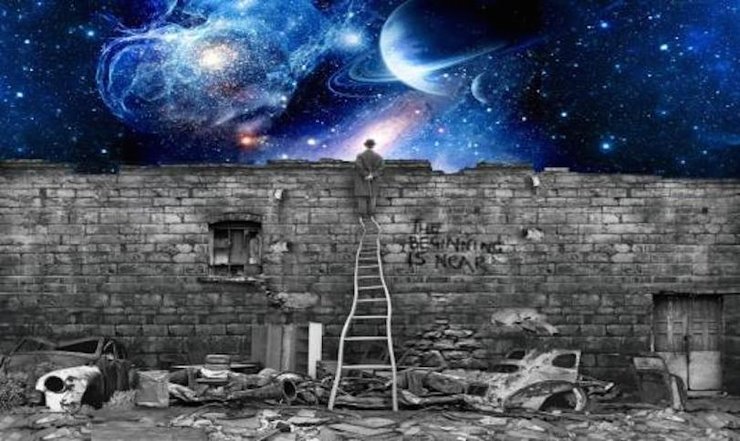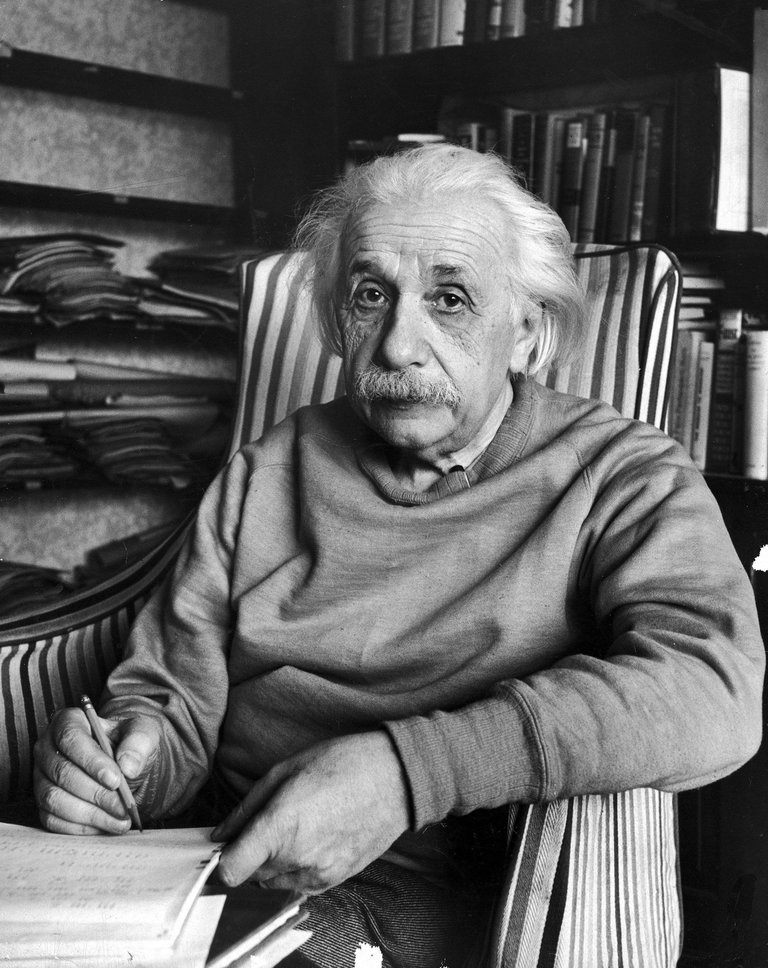The Meaning is in the Context- Voids Between People-

If you use a word that I've have never heard before, I couldn't possibly understand what your trying to say. I may be able to infer the meaning, but there still will be a distinction that goes missing in the exchange of words between us. It doesn't matter how incredible your vocabulary might be, if the person you are speaking with doesn't understand a great majority of the words you’re using. Words you don't know, have no effect on you, making them essentially meaningless. This, of course, also includes colloquial expressions that maybe you aren't aware of, which reminds me of a funny story when my wife and I had traveled to Australia for two and a half weeks. When we were walking down the streets of Brisbane, we overheard a foreman yelling at one of the members in his construction crew. Neither my wife nor I can exactly remember what the expression was, but it was something along the lines of him telling this person to stick out his thumb and turn it backwards… or something like that. Now, it was pretty clear to us that it was meant to be derogatory based on his tone, but since it was so unfamiliar, it seemed more comical than threatening. It sounded so ridiculous to us that we couldn't help but laugh at it upon hearing it, but at the same time, made me think about something. There was a void between the meaning of the expression between the person saying it and us who were casually strolling passed them. Because of that void, the meaning was lost and in hindsight, that void was only created as a result of not being in the know of that phrase. The entire meaning and power of that phrase existed in the way it was interpreted, not the way it was delivered. The eye is in the beholder, not in the deliverer.

Over and over again, I have heard about how countries outside the U.S were much nicer than us, but started to wonder about something after what had just happened. What if the only reason people from another country seemed nicer was due to the communication gap between cultures? Thinking back on all my past experiences, anytime I met a foreign exchange student, or a visitor from another country, I noticed that they always said the same thing about us, that we were saying since we got to Australia: "Everyone here is so nice…" That’s weird, I thought Americans were supposedly the mean ones. After pondering it for a while, I really couldn't think of an instance where I heard someone saying the country they traveled to was terrible. I had a feeling that a lot of it had to do with the void in communication (and accent probably helped too.) To confirm my hypothesis the best I could, I asked a waitress while dining out, about her passed experience to the United States and whether she felt that the communication gaps allowed friendlier interactions between her and the Americans. She mentioned that she had a blast because everyone was very nice there. She said that Americans throw the best parties and everyone was super friendly in general. Most importantly though, before I could even inquire about it, she said that it was probably because of her accent…interesting.
Not being wise to the culture has its benefits because people will knowingly give you some slack. They know that you are from somewhere else and they are pretty sure that you probably do things differently also. I do think however, that it's easier to believe that the reason other countries seem nicer to a visitor, is due to the unfamiliarity to that culture, rather than that country just "being nicer.” After all, if every country were as "nice" or as "mean" as any passerby would suggest, the world would probably function a lot weirder and a lot of crazier things would be happening. It's more likely that other countries appear that way simply because there is a void between what you know and what they do.

The Invisible Void
We use words to talk about our world and the more words we know, the more things we can talk about. The only problem is, inevitably, there will always be things that we can't access because we don't have the words. Consider how many things you may never have put that much thought into if you didn't have a word to describe it.
The way I like to think of it is like this: Imagine that you had a sheet of paper that was long and wide enough to have a picture of the entire universe on it. Some words are physically observable and would be particular points of interest likened to the planets. You can see a planet and therefore, easily give it a name and characteristics much like you could a rock or a baseball bat. Other words however, are abstract and merely represent ideas or constructs likened to the open space between planets. You can travel through space, but don't usually consider it because it's not outright apparent and is kind of like the idea of justice and honor. Those two words can be described and understood, but they can’t be seen or touched. You won’t see a pile of honor floating around in outer space any more than you could possibly see outer space floating in a conversation; it simply doesn't make sense and would be out of context.

So, why am I telling you all of this? For starters, in this giant map of our language, since words themselves don't have any form of physical structure, there can quite literally, be an infinite number of them. Essentially, it’s making our ability to grasp life through words, very ineffective, unless of course, your vocabulary and the vocabulary of anyone you talk to is never-ending. Secondly, let's not forget that words are only representations of what we believe things are, not truly what they are. This means that whenever we talk about something, there is a little bit of distortion between description and reality. Also, even though there could technically be an infinite number of words that could exist, it's very doubtful that we will ever have a word for everything that does exists. This means that there will always be something that we never pay attention to. Words are like abstract devices that allow us to focus in on something that exists, or that we believe exists. It's kind of like using a magnifying glass to make an object bigger so that you can focus on it more clearly. It's not that it didn't exist before you looked at it, it's just that you were unaware of it until you directed your attention towards it. If you don't have a word for something, you can't focus in on it and if you can't focus in on it, it might as well not even exist. Since we are as obsessed with language as a way to understand our reality, the less we have to describe our experiences with, the less there can and ever will be as we know it.

Before we continue, I can’t express enough that it isn’t that we have an insufficient vocabulary that is the problem, it’s that we use language as a crutch to explore our universe. Knowing the names of more concepts, objects, and ideas will undoubtedly give you more leverage, but there is a point where words can no longer take you any further. Even assuming that you knew every word that could possibly exist, the fact that those words are in your personal dictionary could cause you more harm than benefit. Since words are boundless, they can create their own rules and warp the reality of everything around them. Take paradoxes as an example. Paradoxes are contradictory concepts that cannot be understood because they lack a resolution. They are an example of how we can create impossible situations out of thin air. They have no appropriate context and can mistakenly create artificial barriers simply because they are acknowledged. One of my personal favorites goes like this: If I were to ask you if you had lost the horns from on top of your head, you might look at me like I was mad unless you were a deer. You might respond by saying “of course not! I never had horns!” I could then, in turn reason that if you never had horns, you couldn’t have possibly lost them, but if you never lost them, then you must still have them because isn’t it true that if you haven’t lost something, you must still have it? What about the God paradox? A non-believer simply states that if God were infinitely powerful, then he could create a stone so large that he, himself could not even lift it. If he succeeds in making such an object, he couldn’t be all powerful because there should be nothing he can’t move, but if he fails to make it, that would also suggest that there is something that he can’t do. Therefore, according to the skeptic, there cannot be such a thing as an all-powerful God.

Paradoxes are mischievous in the way that they work because they create sets of rules that lead to a contradictory situation that cannot be resolved within the construct of the paradox. They are false realities. They don’t establish conditions that reflect any sort of actual reality. One could argue that they do exist, but contextually speaking, they don’t represent anything more than a clever play on words mixed with a false understanding of a set of situations. They place your understanding into a box and prevent you from leaving that box once you believe the rules that govern them are true. This, in itself, suggests that communicating directly through language is a double-edged sword. You can pass along wisdom quicker than it would take the other party to learn it on their own, but If you could argue yourself into being correct when all you spout off is falsehoods, it proves that it is also an unreliable gauge to accuracy. You can prove anything with words, but that doesn’t mean that you understand them, nor that they are what you say they are.

The thing I want you to consider out of all of this, is how reliant we are on language. We get so caught up on observing the world based on the objects we know, that the space between, goes without notice. It's easy to get caught up thinking that language can encapsulate everything this world has to offer, but it’s quite the contrary. Language, in a way, is limiting because it prevents us from seeing that which has no words. After all, just because we don't have a particular label for something, does not mean that there still isn't something to be seen. Although it may be difficult to envision, there was a point where we used to communicate without words and our ancestors were highly attuned with their environment instead. We had more primal sort of intelligence that reached beyond the grasp of words and existed in pure being. We used to be more spatially aware and more conscious of our surroundings. We were able to think more visually and could think intuitively without the constraints of verbal utterances. As you may have heard before, communication is less about the words you use, but how you use them; it’s not what you say, but how you say it. Albert Einstein even exclaimed the unimportant of words when he stated the following:

"The words of language, as they are written or spoken, do not seem to play any role in my mechanism of thought. The physical entities which seem to serve as elements in thought are certain signs and more or less, clear images."
Over time, we discovered that if we created labels for the things we saw, we would be able to talk at great length about those things even if they weren't immediately present. Although it has been a very useful skill to have, language eventually robbed us of the richness we once had to interpret the world around us abstractly. We started digesting concepts and developed concrete beliefs in things that prevented us from exploring them beyond the boxes we created for them. Water is wet, fire is hot, snow is cold; these are all examples of things that we gave identities to. You could probably hear almost any word spoken out loud and be immediately bombarded with lists upon lists of invisible traits and limitations of that word, all created from your mind. These traits are useful to find similarities between thoughts, but they are restricting because this list of traits paints a picture of the essence of what we're talking about, not its true nature. A brick is a small object used to build a house, but very few alternative thinkers can see its potential in conserving water. How does it work? One student when asked to identify all of the uses of a brick wrote in his essay of its ability to reduce the amount of water you use when flushing your toilet by displacing the water level of your septic tank after placing it inside. What a clever kid. Most other participants in this cognition test could only come up with uses such as building with them or perhaps breaking a window. Is it really any surprise though? When you think of the word "brick," "building" is probably the first thing that comes to your mind because you've been taught already that this is that word's purpose.

Whether it's a brick or a bike, every word has in it, more potential than its initially thought to have, even though we have reduced them to a definite and limited form. This is one of the unavoidable costs of being able to talk about the world in an intellectual manner. We can ponder the nature of elaborate systems, yes, but we lose the ability to see what has yet to be discovered and are likely to remain oblivious if we always assume that things have only one definite purpose.
Nice write up
First I write and then I think, upps sorry first I think and then I write, we have to use logic, that is my language, it is difficult to digest.
You got a 3.19% upvote from @postpromoter courtesy of @thegreatlife!
Want to promote your posts too? Check out the Steem Bot Tracker websitevote for @yabapmatt for witness! for more info. If you would like to support the development of @postpromoter and the bot tracker please
I don't know what happened but I think I fell in love with the girl on the first photo. This post is a good read too thanks @thegreatlife.
Thank you!
Your post is very important to me. We learned and learned a lot in this writing. I want you to write a beautiful beautiful post so that we can learn.
https://steemit.com/communication/@arean22266/love-is-in-favor-of-people-moon